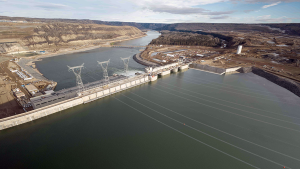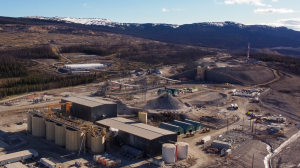Western Canadian construction leaders are frustrated to varying degrees by the latest delay to hit the Trans Mountain pipeline project but are resolute in their support of the project.
The Federal Court of Appeal decided on Sept. 4 it will hear six appeals out of 12 submitted related to construction of the Trans Mountain pipeline, which extends from Edmonton to Burnaby and crosses through the territory of several First Nations.
The federal government has twice approved building the pipeline and some construction is already underway, but the court will hear evidence to assess whether the federal government did enough consultation with Indigenous communities before the latest approval in June.
For many construction industry leaders, the latest decision adds to present uncertainty about the Trans Mountain pipeline and other major projects.
“I really don’t know where we go from here. From an economic perspective, we’re sending a message to the rest of the world that Canada is closed for business,” Progressive Contractors Association (PCA) western Canada director of stakeholder relations Rieghardt van Enter said.
“Nobody knows where the goal line is, which is what industry has been saying from the beginning,” he added.
Independent Contractors and Businesses Association (ICBA) president Chris Gardner echoed concerns that the decision would put a chill on investment in major Canadian projects. Gardner cited a statement by Royal Bank CEO Dave McKay in April 2019 that Canada has lost out on $100 billion in investment in the last two years due to regulations and uncertainty surrounding major projects.
“That rests at the feet of the federal and provincial governments. It’s their job to provide certainty not of the outcome but of the process,” Gardner said. “The problem is we now have a reputation for changing the goalposts with no certainty or finality, so investors are looking for other jurisdictions in which to invest.”
Gardner added Trans Mountain has faced a particularly tumultuous development process.
“It’s frustrating to see a never-ending series of court challenges to a project that has been evaluated extensively. The proponent has done everything that can be reasonably expected of it to get to where we can build,” he said.
BC Building Trades executive director Tom Sigurdson voiced support for the court in fulfilling its appointed role but added his organization wants the project to move forward.
“The court is an important part of a democratic society and is going to do what it is charged to do, so this is another decision by the court to get a better definition of a couple of outstanding issues,” he said.
“In terms of reference for individuals who are opposed to pipeline, their lines of argument are becoming narrower. The court won’t hear the larger arguments over and over and they’ve dismissed many of them, but until the court is satisfied that the First Nations directly impacted have had consultation appropriate to the matter, the court will serve as an arbiter and make sure people have had chance to express more than their general opposition but their legal opposition to the project,” he added.
Sigurdson stressed BC Building Trades members are from communities where the pipeline will be built, and the association is in favor of the pipeline.
“We’ve always been clear, we want our members building the project. Our members live and work in communities where the pipeline will be, and if they build this project it will be built to highest degree of safety and environmental concerns and we want to make sure our members are on those projects,” Sigurdson said.
Vancouver Regional Construction Association president Fiona Famulak shared the concerns of the other association heads.
“While Wednesday’s ruling does not include a stop-work order it is nonetheless frustrating to return to a place where the consultative process is again called into question. We respect the rights of the petitioners to ask the courts whether the government, in its second round of consultation with First Nations, met the standards for engagement established by the courts earlier this year. We expect the government to have followed the standards, and to have clearly communicated their process to all involved: First Nations, the public and the courts,” Famulak said.
“Anything less creates uncertainty, erodes investor confidence and sends a signal to the world that Canada is unable to provide a dependable environment in which to invest,” she added.
British Columbia Construction Association (BCCA) president Chris Atchison voiced support for the court’s decision.
“BCCA supports the Trans Mountain Pipeline Expansion Project and is pleased that work on the project is resuming in B.C. and Alberta. That said, our position has always been that a project of this nature must only take place in a way that respects Canada’s commitments to environmental responsibility and meaningful engagement with Indigenous people and organizations,” Atchison said in a statement.
“We are pleased that the Federal Court of Appeal has the ruled that the project has met its regulatory requirements related to the environment. The Court’s decision to allow six challenges to proceed will ensure that the project meets its obligations related to Indigenous consultation and meaningfully engaging Indigenous people,” he added.
The Canadian Association of Petroleum Producers issued a statement following the release of the court’s decision expressing disappointment at the result.
“We support meaningful engagement with Indigenous Peoples for the responsible development of our energy resources. Canada has an opportunity to provide the world with its sustainably produced oil and natural gas to help reduce net global emissions and to meet growing global energy demand. The TMEP has already undergone a lengthy, thorough and extensive regulatory review process, including extensive consultation with all stakeholders. It has been deemed to be in the best interests of all Canadians,” CAPP president and CEO Tim McMillan said.











This whole ongoing court battle for final approval is beyond ridiculous – when is enough, enough. I can’t believe this is happening!